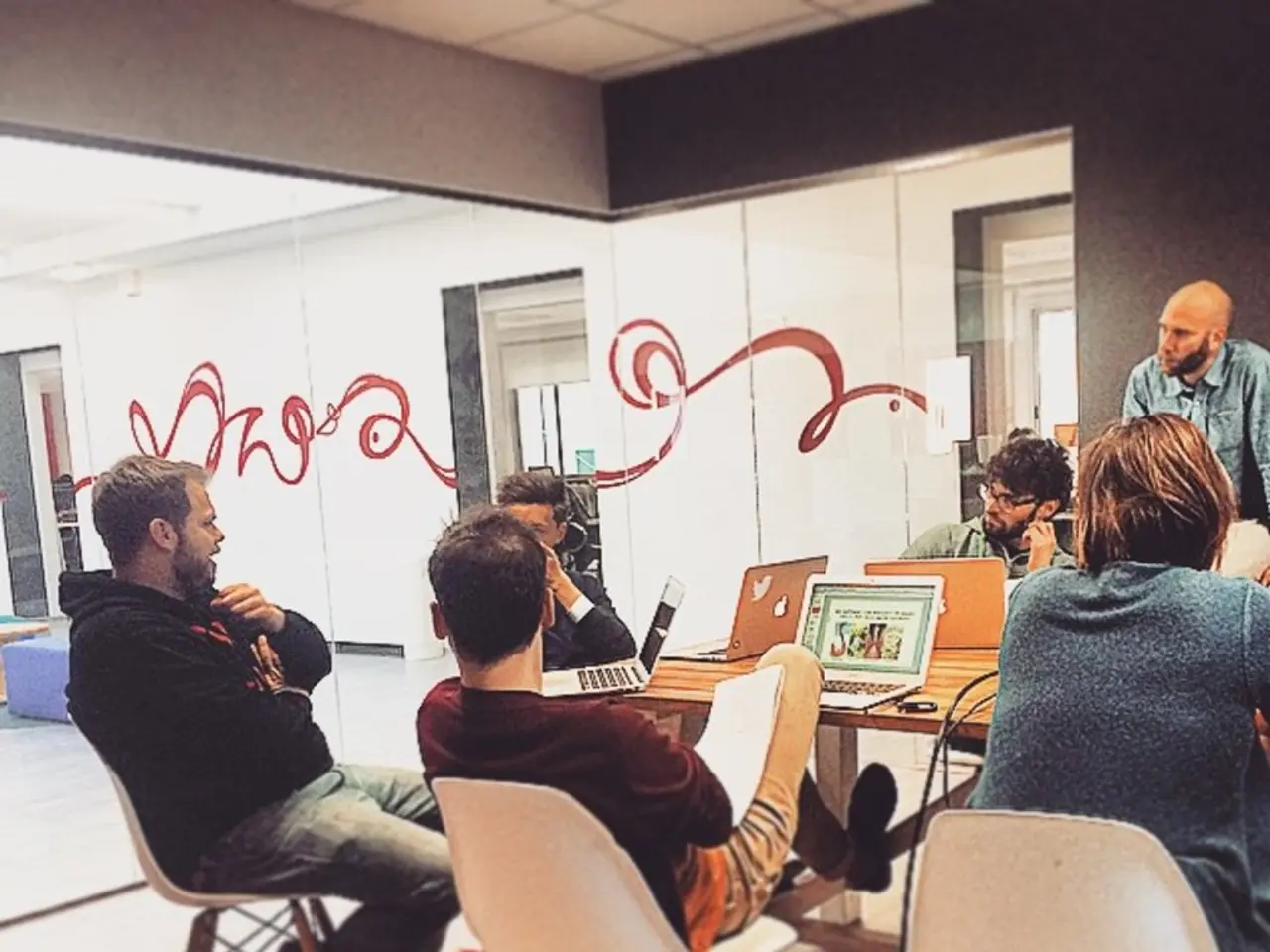Artificial intelligence mechanisms assume agricultural labor roles, performing chemical spraying tasks and farm labor duties, replacing traditional weed killers and human workforces.
In the heart of the United States, a revolutionary solution is making significant strides in transforming agriculture. This innovative technology, named Element, is the brainchild of the 25-person startup Aigen, based near Seattle. Element, a solar-powered autonomous robot, is designed to identify and remove weeds without the use of herbicides, addressing two critical issues: labor shortages in farming and the environmental impact of chemical weed killers.
Currently, Element robots are actively deployed in various crop fields such as tomato, cotton, and sugar beet farms in California and other areas. The technology has gained attention from major industry players, including Amazon Web Services (AWS), which selected Aigen for its "Compute for Climate" fellowship to support startups using AI to combat environmental challenges.
With a price tag of $50,000 each, these robots are priced competitively for farmers. The AI system embedded within Element allows it to follow crop rows and identify weeds, all while avoiding damage to crops. The technology resembles a large table on wheels with solar panels on top, mimicking how humans work in the field.
Environmental sustainability is a key benefit of Element. By eliminating reliance on herbicides, Element promotes healthier food production and reduces the ecological footprint of farming. Economically, the robots help fill the labor gap caused by a shortage of skilled farm workers and reduce costs associated with herbicide purchases and manual weeding.
Climate-friendly farming is another advantage of Element. Running on solar power, these robots provide a clean alternative to diesel-powered heavy machinery, appealing especially to farmers concerned about land health and sustainable practices. Element's ability to operate autonomously in harsh conditions, such as the intense midday heat, shows promise for robust, year-round deployment.
Industry experts compare Aigen's innovation to historic disruptive technologies, suggesting that it could become a landmark development in agricultural mechanization. Aigen co-founder and chief executive Kenny Lee stated that farmers don't love using chemicals, but they use them as a tool. Element is designed to save farmers money, help the environment, and keep harmful chemicals out of food.
Aigen's vision is to upskill workers from manual farming tasks to monitoring and troubleshooting robots. The startup is focusing on appealing to politically conservative farmers with a climate-friendly option that uses solar power instead of diesel fuel. Co-founder and chief technology officer Richard Wurden believes that Element can improve human health significantly.
When the sun goes down, Element powers down and goes to sleep, and in the morning it comes back up and starts working again. The robots developed by Aigen communicate wirelessly with small control centers, notifying handlers of any mishaps. Aigen's robots are currently operational in tomato, cotton, and sugar beet fields, with plans to expand to other crops and regions in the future.
With backing from significant tech entities like AWS, Aigen's Element robot is poised to become a potentially transformative force that can enhance farm productivity, reduce environmental harm, and address labor challenges in agriculture globally.
- The technology, known as Element, developed by Aigen, is not only designed to revolutionize agriculture but also to contribute to the arts, health, and environment by providing a solar-powered, autonomous solution for weed removal without herbicides.
- Aigen's Element robot, a key innovator in the field of artificial intelligence, has drawn the attention of major industry players like Amazon Web Services (AWS) due to its potential in combating environmental challenges through AI.
- Beyond its impact on agriculture, the adoption of Aigen's Element robot can lead to improved human health by reducing the reliance on harmful chemicals, promoting cleaner farming practices using solar power, and providing an opportunity to upskill workers in monitoring and troubleshooting robots.




